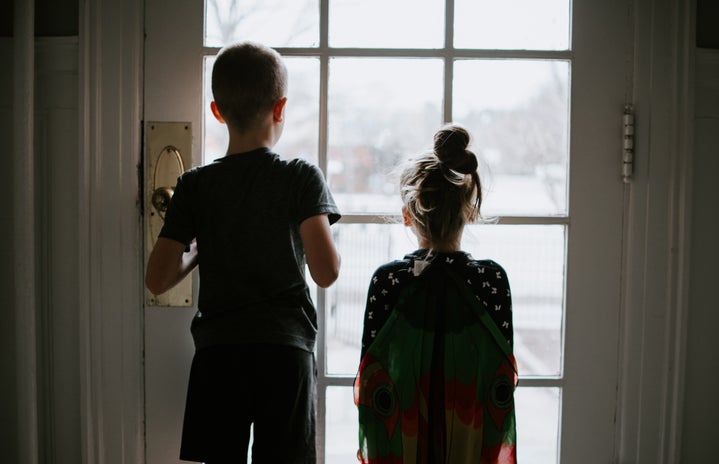Picture this: Your adult relative goes to hug your younger, kid relative. However, the child wants NOTHING to do with said adult and repeatedly tells them, “no!” The adult refuses to accept this as an answer and continues to pursue the child to give them a hug. Other adult relatives, standing around watching, laugh off the incident or label the child a ‘brat.’ In the end, the child is either forced into an uncomfortable and awkward display of affection or cries ’till the adult reluctantly stops begging them for a hug.
Even as I typed that out, it became increasingly worrisome to me how demoralizing the entirety of this situation is, as well as how frequent and common this occurs. You can easily replace the word “child” in this with “adult” and see just how weird this dynamic is. Although, I hope it is also clear with kids how inequitable, as well as creepy that is for them. As an adult, our daily occurrences with others rests on the basis of a shared respect for one another. Therefore, when we tell someone ‘yes’ or ‘no’ or give any basic answer, our meaning is understood and taken seriously.
So my question becomes, why isn’t this the case for kids as well?
Too often, we treat kids like puppets and act like this dominating authority with the idea, ‘what I say goes, no questions asked.’ When kids do question commands, adults respond agitated and self-righteously with a ‘how dare you’ mindset. What adults fail to consider is that kids are our equals just as much as another adult is, and their opinions are valid. Instead of correcting what we want their answers to be, we need to accept their decisions as final as it is their own body and choice. In fact, with kids, we should put an even stronger emphasis on teaching them that no means no and that other people should respect their wish to not be touched.
Even more than this, we need to delve further into why other adults require the affection of children so much that they are upset at not receiving it. I am not trying to claim that all adults who react negatively to a child saying no are malicious or creepy, but I do think it requires some reflection. Why do people get so mad when a child tells them no? I think the answer lies somewhere in a desire for power where the dominant person is able to win this struggle through their demands being complied to. Too often adults view kids as a toy or a prop that is to bend to their will and refuse to see that they have their own opinions and desires.
How do we stop this?
In a world where adults cannot even take the answer no from other adults, we need to begin by teaching kids that their choices matter. When they say no, it holds validity, and this needs to stay consistent with all adults in their life – never to be compromised. Their little voices matter, and one day when they are older, they will be thankful that they were raised to know this. In issues of consent, boys especially, cannot seem to take the word no, and girls feel like they are obligated to say yes, out of guilt and fear. When kids are taught to go against their gut instinct as a child they become wary and ignorant to what their body is telling them, which only grows into adulthood. They feel they have no say in what happens to their body and think it is okay for people to always touch them without asking. Even when they do ask, they feel an obligation to say yes.
Teaching consent begins as early as toddler age with kids having the space to say no to the adults, kids, and peers in their life. Forcing kids to do something that compromises their bodily autonomy only conflicts with their integrity and self-assuredness. When kids don’t think their words matter, they feel they need to comply with all requests people make of them and their body, therefore enabling the idea that they have no control over their own body. I work at a daycare where I see the same toddlers every day all day. When they wake up from their nap, I often will ask them if they want a hug, and sometimes they want one, and other times they don’t. Of course, I would love to give them a hug as I do love them, but I also love them enough to let them make their own decisions about their body. Nobody should ever be forced to do something they don’t want to do, and we need to begin to enforce this with kids.
So next time your aunt or uncle goes in for a hug with your younger sibling or cousin, and the latter says “no” or shows discontent at the thought of hugging altogether, watch carefully at the reactions of other adults. I hope for the child’s sake they have a guardian or someone else that would step in and reinforce the child’s choice, but if not, consider being that someone for them.


